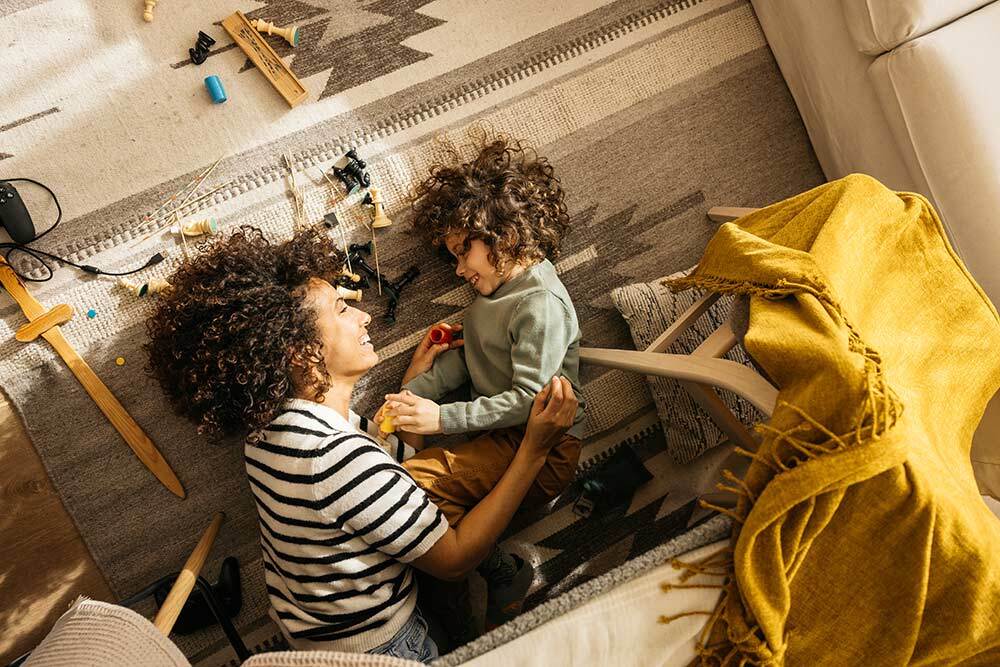Embrace Imperfection: The Secret to Happier, More Confident Parenting

Parenting isn’t about perfection; it’s about presence. When you embrace imperfection, you create space for connection, confidence, and the kind of joy that lives in the messy, beautiful middle.
If you’ve ever cried in the laundry room because the baby wouldn’t nap, dinner burned, and someone asked if you were “enjoying every moment,” this is for you. Parenting isn’t perfect. And neither are you. And that’s not only OK; it’s necessary because embracing imperfection is one way to loosen the grip of perfectionism.
Parenting is loud, sticky, chaotic, and beautiful.
Let Go of the Pressure
You know what perfectionism does? It makes you question yourself nonstop. Like, even when things are mostly OK, there’s this voice saying it’s not enough. And the wild part? While you’re busy chasing some impossible version of perfect, the real stuff, your kid’s sticky grin after breakfast, those ridiculous socks they picked out, the way you both passed out halfway through a bedtime story, it all just … happens without you noticing. Letting go of perfect doesn’t mean you’ve stopped caring. It just means you’re finally paying attention to what really counts.
Ask yourself:
- Did everyone eat something today?
- Did you give a hug when your kid lost it?
- Did you show up even when you felt tired and uncertain?
That’s enough.
The Myth of the Perfect Parent
There is no such thing as a perfect parent. But there are plenty of loving, real ones. The ones who forget pajama day but remember the cuddles. The ones who raise their voices but apologize and try again. The ones who model resilience by admitting when they make mistakes.
Perfectionist tendencies are hard to shake, especially when images of perfect homes and lunches surround us. But remember, social media is a highlight reel, not real life. You don’t need to live up to impossible standards. Your kids don’t need perfect. They need you. Present.
Embracing the Beauty of Imperfection
The Japanese concept of wabi-sabi is a call to view beauty in the imperfect. It is to see value in the cracks, in the wear, in the broken and the loved. A chipped mug holds coffee just as well. A battered teddy bear is a keepsake. Your parenting, despite its challenges and chaos, has value. Love your flaws. Connection thrives there. Growth starts there.
What It Looks Like to Embrace Imperfection
Saying no to one more activity so you can enjoy dinner. Choosing rest over dishes. Admitting you don’t know and learning together. Letting go of the idea that love is measured in bento box lunches. Laughing when the dog eats the homework. When we allow space for imperfection, we make room for joy. We create an environment where kids learn that being human is OK.
Why This Matters for Mental Health
Parenting from the weight of constant self-criticism harms your mental health. It generates anxiety and promotes burnout. You believe the voice in your head saying, “You’re not enough.” But when you practice self-compassion, you break the cycle. You shut down the fear of failure and build self-worth. You quiet your mind when you remind yourself that hard days happen and mistakes are part of the learning process.
Mental health is a necessity. Teach your kids to emulate self-acceptance and emotional regulation to strengthen their emotional intelligence. It’s OK for your kids to see you cry, and it’s OK for them to see you take a break. That’s how they learn boundaries and empathy.
Rewriting the Narrative
Instead of chasing perfection, try rewriting the story. What if your value wasn’t based on output but on presence? What if personal growth came from the messes, not in spite of them? True selves emerge when we drop the mask. Validation doesn’t come from others. It comes from honoring your experience and trusting that you are enough.
Self-discovery in parenting often comes in the form of spilled juice and tantrums. It comes when we are stretched, undone, and real. These experiences are where confidence grows.
From Perfectionism to Confidence
Confidence doesn’t mean knowing all the answers. It means trusting that you can figure it out. It means learning how to speak to yourself with affirmations instead of judgment.
Say it with me:
- I am allowed not to know everything.
- I am doing enough.
- I am learning every day.
These small shifts in self-talk matter. They reshape your self-esteem. They build self-worth. They heal years of internalized pressure.
Start Small, Stay Honest
It starts with one step: do one thing imperfectly on purpose. Let the laundry sit. Serve cereal for dinner. Say no to the event you feel obligated to attend. Observe what happens. Chances are, the world will keep spinning. Your kids will still love you. You might even breathe a little easier.
Self-improvement is like lowering the bar and raising the connection. Self-acceptance is not complacency. It is the groundwork for becoming a better parent and a happier person.
Finding Light in the Daily Life
In daily life, the small wins matter. They are the proof that you are showing up and laughing through the hard parts. Let your children teach you how to slow down and notice. Seeing their wonder reminds you that mess can be magical. Trying new things, even as a beginner, is growth.
Trying again after a rough day is resilience. You do not have to be perfect to be powerful. You do not have to be polished to be present.
The Role of the Podcast Pause
Listening to a podcast that validates your experience or offers parenting insights can be transformative. It can feel like a lifeline when you need reassurance. Seek out voices that celebrate the imperfect. That reminds you that being human is the point. To be flawed. To be funny. To be whole and worthy even on the days that you are held together with dry shampoo and caffeine.
For the First Time Parent (and Beyond)
It can feel overwhelming if this is your first time walking the parenting path. The expectations. The comparisons. The unsolicited advice. Here is your reminder: your journey is your own. The best thing you can offer your child is your real self. Not a curated version.
In the End
When you embrace imperfection, you embrace freedom. You make space for joy, for rest, for authentic connection. You remember that being human is enough. You are not raising perfect children. You are raising resilient ones. And they learn that from watching you navigate daily life with grace, humor, and honesty. So take the pressure off. Let go of perfectionism. Choose the beauty of imperfection. That is the secret to happier, more confident parenting. And in case no one has told you lately, you are doing great.








